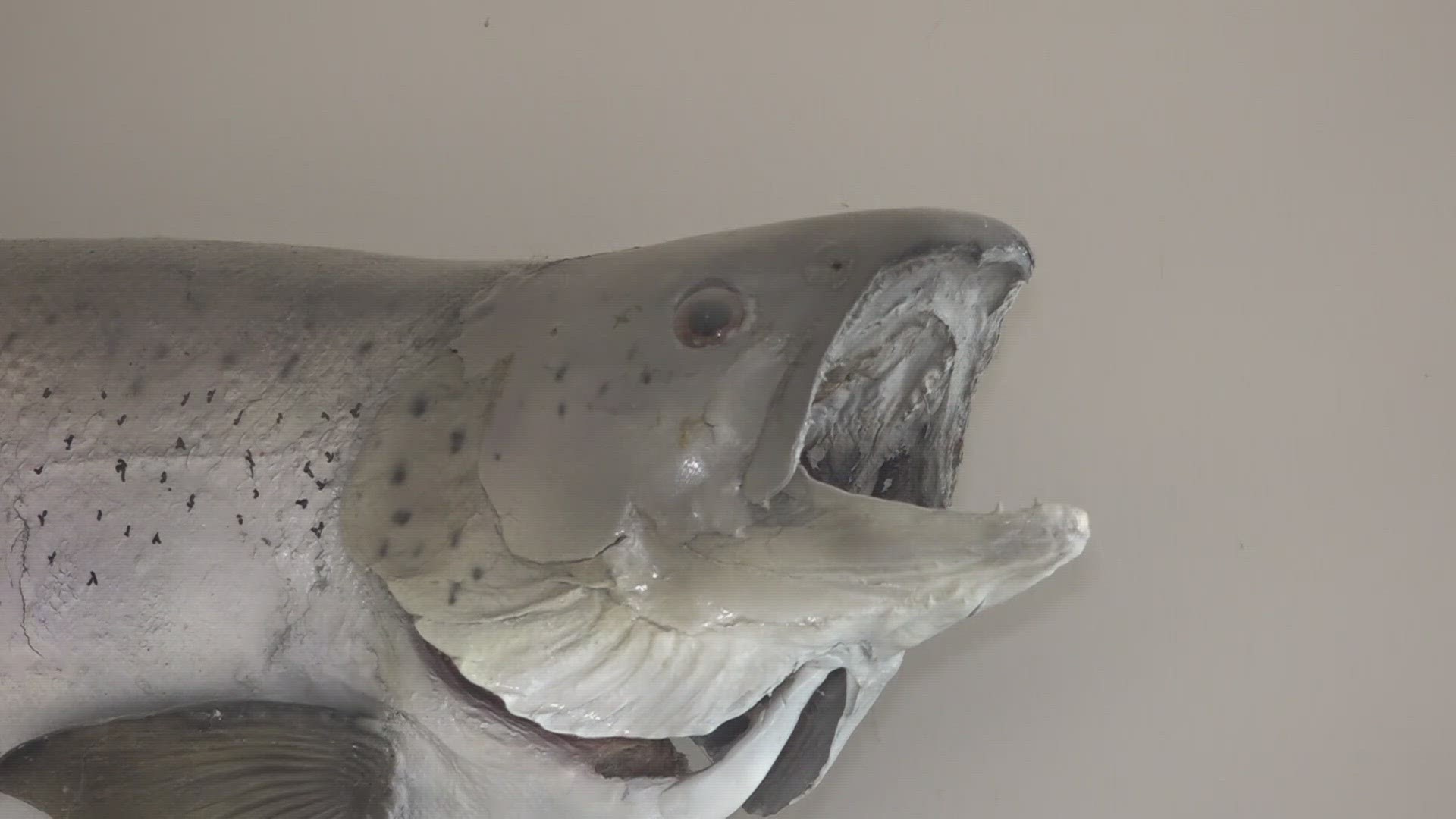EAST MACHIAS, Maine — The effort to conserve endangered Atlantic salmon is in disarray, weeks after the euthanizing of 155,000 pares (young salmon) following the discovery of a deadly fish virus at the Downeast Salmon Federation hatchery in East Machias.
"It's always been a possibility, and this year just happened to be the year," Mitch Monini, the hatchery’s director said on Monday.
Just before being released into the nearby watershed, several fish grown at DSF’s facility tested positive for Infectious Pancreatic Necrosis, a deadly disease that can affect several species of fish.
Though few of DSF’s Atlantic salmon showed severe symptoms, the decision was made to kill the year’s stock—sinking months of work and jeopardizing future populations of Atlantic salmon in Maine.
"When you're talking about Atlantic salmon in the wild—literally every fish counts, because there are so few of them left," Charlie Foster, the associate director of the Downeast Salmon Federation said.
But to Foster, the call was a necessary one—and one that was made with heavy consultation of the Maine Department of Marine Resources to prevent, in Foster’s words, "spreading that pathogen to other fish in the watershed."
As this last year’s stock is buried away, the focus now moves to how to prevent such a catastrophe from impacting hatcheries. To be able to grow the next batch of fertilized eggs, the Downeast Salmon Federation will have to introduce an ultra-violet disinfectant device into its tanks.
While long-resisted for its role in killing macro-invertebrates that the salmon eat in captivity—a skill that will transfer when they enter the while—the leaders of DSF see the UV rays as an inevitability.
"They are designed to help kill virus and bacteria that may come into the facility…to minimize the chance of this happening again," Monini said.
While the organization looks forward, some in the scientific community are still remarking on the calamity that just happened.
"It’s definitely more, way more than a drop in the bucket," Sherrie Sprangers, a professor of biology at the University of Maine at Machias, said. She added that the destruction of this year’s stock will have far-reaching impacts. "In four years, when we're expecting adult salmon to come back—they won't be there."

